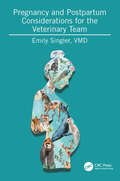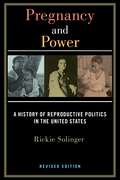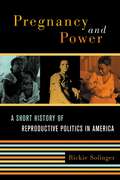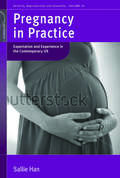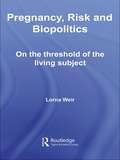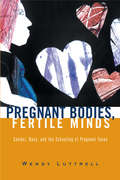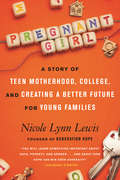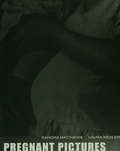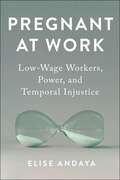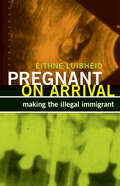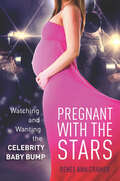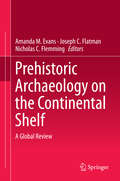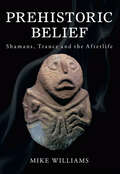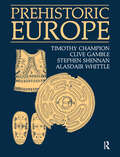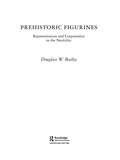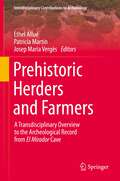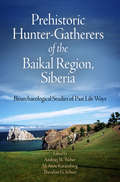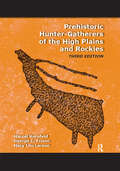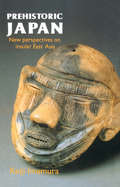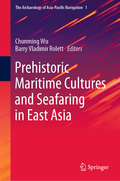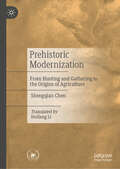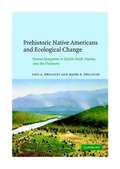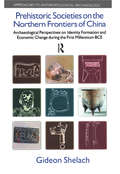- Table View
- List View
Pregnancy and Postpartum Considerations for the Veterinary Team
by Emily SinglerPrecautions often apply to pregnancy in any workplace, but being a vet in practice presents additional specific risks. There are concerns and uncertainty about potential hazards, from radiation and inhalant anesthesia exposure, to zoonoses, and the additional mental stress in a profession that already carries high suicide risk. This book reviews considerations for professionals in clinical veterinary medicine (large and small animal) while pregnant and after giving birth. Veterinarian and veterinary writer, consultant, and mentor Dr Emily Singler speaks directly to veterinary team members (veterinarians, technicians, CSRs, assistants, students) who are pregnant or plan to become pregnant. She delivers scientific information on the specific risks to the mother and baby that may be encountered during pregnancy while working in veterinary medicine, with some of her own and others’ experiences to add perspective and humor. The book also covers topics related to mental health challenges, announcing a pregnancy and planning for parental leave, navigating the fourth trimester, and returning to work. We hope that having read this book, veterinary professionals – whether pregnant or working with pregnant colleagues – will feel better supported and empowered to make informed decisions.
Pregnancy and Power, Revised Edition: A History of Reproductive Politics in the United States (Postmillennial Pop)
by Rickie SolingerA sweeping chronicle of women’s battles for reproductive freedomReproductive politics in the United States has always been about who has the power to decide—lawmakers, the courts, clergy, physicians, or the woman herself. Authorities have rarely put women’s needs and interests at the center of these debates. Instead, they have created reproductive laws and policies to solve a variety of social and political problems, with outcomes that affect the lives of different groups of women differently.Reproductive politics were at play when slaveholders devised “breeding” schemes, when the US government took indigenous children from their families in the nineteenth century, and when doctors pressured Latina women to be sterilized in the 1970s. Tracing the main plot lines of women’s reproductive lives, the leading historian Rickie Solinger redefines the idea of reproductive freedom, putting race and class at the center of the effort to control sex and pregnancy in America over time.Revisiting these issues after more than a decade, this revised edition of Pregnancy and Power reveals how far the reproductive justice movement has come, and the renewed struggles it faces in the present moment. Even after nearly a half-century of “reproductive rights,” a cascade of new laws and policies limits access and prescribes punishments for many people trying to make their own reproductive decisions. In this edition, Solinger traces the contemporary rise of reproductive consumerism and the politics of “free market” health care as economic inequality continues to expand in the US, revealing the profound limits of “choice” and the continued need for the reproductive justice framework.
Pregnancy and Power: A Short History of Reproductive Politics in America
by Rickie SolingerA sweeping chronicle of women's battles for reproductive freedomA sweeping chronicle of women's battles for reproductive freedom throughout American history, Pregnancy and Power explores the many forces—social, racial, economic, and political—that have shaped women’s reproductive lives in the United States.Leading historian Rickie Solinger argues that a woman’s control over her body involves much more than the right to choose an abortion. Reproductive politics were at play when slaveholders devised breeding schemes, when the U.S. government took Indian children from their families in the nineteenth century, and when doctors pressed Latina women to be sterilized in the 1970s. Tracing the diverse plot lines of women’s reproductive lives throughout American history, Solinger redefines the idea of reproductive freedom, putting race and class at the center of the effort to control sex and pregnancy in America over time. Solinger asks which women have how many children under what circumstances, and shows how reproductive experiences have been encouraged or coerced, rewarded or punished, honored or exploited over the last 250 years. Viewed in this way, the debate over reproductive rights raises questions about access to sex education and prenatal care, about housing laws, about access to citizenship, and about which women lose children to adoption and foster care.Pregnancy and Power shows that a complete understanding of reproductive politics must take into account the many players shaping public policy—lawmakers, educators, employers, clergy, physicians—as well as the consequences for women who obey and resist these policies. Tracing the diverse plotlines of women's reproductive lives throughout American history, Solinger redefines the idea of reproductive freedom, putting race and class at the center of the struggle to control sex and pregnancy in America.
Pregnancy in Practice
by Sallie HanBabies are not simply born-they are made through cultural and social practices. Based on rich empirical work, this book examines the everyday experiences that mark pregnancy in the US today, such as reading pregnancy advice books, showing ultrasound "baby pictures" to friends and co-workers, and decorating the nursery in anticipation of the new arrival. These ordinary practices of pregnancy, the author argues, are significant and revealing creative activities that produce babies. They are the activities through which babies are made important and meaningful in the lives of the women and men awaiting the child's birth. This book brings into focus a topic that has been overlooked in the scholarship on reproduction and will be of interest to professionals and expectant parents alike.
Pregnancy, Risk and Biopolitics: On the Threshold of the Living Subject (Transformations)
by Lorna WeirTraditionally, Euroamerican cultures have considered that human status was conferred at the conclusion to childbirth. However, in contemporary Euroamerican biomedicine, law and politics, the living subject is often claimed to pre-exist birth. In this fascinating book Lorna Weir argues that the displacement of birth as the threshold of the living subject began in the 1950s with the novel concept of ‘perinatal mortality’ referring to death of either the foetus or the newborn just prior to, during or after birth. Weir’s book gives a new feminist approach to pregnancy in advanced modernity focusing on the governance of population. She traces the introduction of the perinatal threshold into child welfare and tort law through expert testimony on foetal risk, sketching the clash at law between the birth and perinatal thresholds of the living subject. Her book makes original empirical and theoretical contributions to the history of the present (Foucauldian research), feminism, and social studies of risk, and she conceptualizes a new historical focus for the history of the present: the threshold of the living subject. Calling attention to the significance of population politics, especially the reduction of infant mortality, for the unsettling of the birth threshold, this book argues that risk techniques are heterogeneous, contested with expertise, and plural in their political effects. Interview research with midwives shows their critical relation to using risk assessment in clinical practice. An original and accessible study, this book will be of great interest to students and researchers across many disciplines.
Pregnant Bodies, Fertile Minds: Gender, Race, and the Schooling of Pregnant Teens
by Wendy LuttrellFocusing on fifty girls enrolled in a model public school program for pregnant teens, Luttrell explores how pregnant girls experience society's view of them and also considers how these girls view themselves and the choices they've made. Also includes an 8-page color insert.
Pregnant Girl: A Story of Teen Motherhood, College, and Creating a Better Future for Young Families
by Nicole Lynn LewisAn activist calls for better support of young families so they can thrive and reflects on her experiences as a Black mother and college student fighting for opportunities for herself and her child.Pregnant Girl presents the possibility of a different future for young mothers--one of success and stability--in the midst of the dismal statistics that dominate the national conversation. Along with her own story as a young Black mother, Nicole Lynn Lewis weaves in those of the men and women she's worked with to share a new perspective on how poverty, classism, and systemic racism impact teen pregnancy and on how effective programs and equitable policies can help teen parents earn college degrees, have increased opportunity, and create a legacy of educational and career achievements in their families. After Nicole became pregnant during her senior year in high school, she was told that college was no longer a reality--a negative outlook often unfairly presented to teen mothers. Nicole left home and experienced periods of homelessness, hunger, and poverty. Despite these obstacles, she enrolled at the College of William & Mary and brought her three-month-old daughter along. Through her experiences fighting for resources to put herself through college, she discovered her true calling and founded her organization, Generation Hope, to provide support for teen parents and their children so they can thrive in college and kindergarten--driving a two-generation solution to poverty.Pregnant Girl will inspire young parents faced with similar choices and obstacles that they too can pursue their goals with the right support.
Pregnant Pictures
by Sandra MatthewsIn this dazzling collection of over 200 photos of pregnant women taken from art libraries, childbirth manuals, maternity ads, contemporary art, and personal albums, the authors explore the paradox between image and reality. The photos illuminate how society creates feminine roles through the institution of pregnancy-and how women resist such roles.
Pregnant at Work: Low-Wage Workers, Power, and Temporal Injustice (Anthropologies of American Medicine: Culture, Power, and Practice #11)
by Elise AndayaWinner of the 2024 Senior Book Prize from the Association of Feminist AnthropologyA compelling analysis of social inequality through the perspective of pregnant, low-wage service workersThe low-wage service industry is one of the fastest-growing employment sectors in the US economy. Its workers disproportionately tend to be low-income and minority women. Service sector work entails rigid forms of temporal discipline manifested in work requirements for flexible, last-minute, and round-the-clock availability, as well as limited to no eligibility for sick and parental leaves, all of which impact workers’ ability to care for themselves and their dependents.Pregnant at Work examines the experiences of pregnant service sector workers in New York City as they try to navigate the time conflicts between precarious low-wage service labor and safety net prenatal care. Through interviews and fieldwork in a prenatal clinic of a public hospital, Elise Andaya vividly describes workers’ struggles to maintain expected tempos of labor as their pregnancies progress as well as their efforts to schedule and attend prenatal care, where waiting is a constant factor—a reflection of the pervasive belief that poor people’s time is less valuable than that of other people.Pregnant at Work is a compelling examination of the ways in which power and inequalities of race, class, gender, and immigration status are produced and reproduced in the US, including in individual pregnant bodies. The stories of the pregnant workers featured in this book underscore the urgency of movements towards temporal justice and a new politics of care in the twenty-first century.
Pregnant on Arrival: Making the Illegal Immigrant (Difference Incorporated)
by Eithne Luibhéid&“State alert as pregnant asylum seekers aim for Ireland.&” &“Country Being Held Hostage by Con Men, Spongers, and Those Taking Advantage of the Maternity Residency Policy.&” From 1997 to 2004, headlines such as these dominated Ireland&’s mainstream media as pregnant immigrants were recast as &“illegals&” entering the country to gain legal residency through childbirth. As immigration soared, Irish media and politicians began to equate this phenomenon with illegal immigration that threatened to destroy the country&’s social, cultural, and economic fabric. Pregnant on Arrival explores how pregnant immigrants were made into paradigmatic figures of illegal immigration, as well as the measures this characterization set into motion and the consequences for immigrants and citizens. While focusing on Ireland, Eithne Luibhéid&’s analysis illuminates global struggles over the citizenship status of children born to immigrant parents in countries as diverse as the United States, Hong Kong, and elsewhere. Scholarship on the social construction of the illegal immigrant calls on histories of colonialism, global capitalism, racism, and exclusionary nation building but has been largely silent on the role of nationalist sexual regimes in determining legal status. Eithne Luibhéid turns to queer theory to understand how pregnancy, sexuality, and immigrants&’ relationships to prevailing sexual norms affect their chances of being designated as legal or illegal.Pregnant on Arrival offers unvarnished insight into how categories of immigrant legal status emerge and change, how sexual regimes figure prominently in these processes, and how efforts to prevent illegal immigration ultimately redefine nationalist sexual norms and associated racial, gender, economic, and geopolitical hierarchies.
Pregnant with the Stars
by Renée Cramer"Check out that baby bump!" Online and print magazines, television shows, and personal blogs are awash with gossip and speculation about pregnant celebrities. What drives our cultural obsession with celebrity baby bumps? Pregnant with the Stars examines the American fascination with, and judgment of, celebrity pregnancy, and exposes how our seemingly innocent interest in "baby bumps" actually reinforces troubling standards about femininity, race, and class, while increasing the surveillance and regulation of all women in our society. This book charts how the American understanding of pregnancy has evolved by examining pop culture coverage of the pregnant celebrity body. Investigating and comparing the media coverage of pregnant celebrities, including Jennifer Garner, Angelina Jolie, Beyoncé Knowles, Kristen Bell, M.I.A., Jodie Foster, and Mila Kunis, Renée Cramer shows us how women are categorized and defined by their pregnancies. Their stories provide a paparazzi-sized lens through which we can interpret a complex set of social and legal regulations of pregnant women. Cramer exposes how cultural ideas like the "rockin' post-baby body" are not only unattainable; they are a means of social control. Combining cultural and legal analysis, Pregnant with the Stars uncovers a world where pregnant celebrities are governed and controlled alongside the recent, and troubling, proliferation of restrictive laws aimed at women in the realm of reproductive justice and freedom. Cramer asks each reader and cultural consumer to recognize that the seeing, judging, and discussion of the "baby bump" isn't merely frivolous celebrity gossip--it is an act of surveillance, commodification, and control.
Prehistoric Archaeology on the Continental Shelf: A Global Review
by Amanda M. Evans Joseph C. Flatman Nicholas C. FlemmingThe chapters in this edited volume present multi-disciplinary case studies of prehistoric archaeological sites located on now-submerged portions of the continental shelf. Each chapter represents an extension of the known prehistoric record beyond the modern shoreline. Case studies represent central themes of landscape change, climate change and societal development, using new technologies for mapping, monitoring and managing these sites.
Prehistoric Belief: Shamans, Trance and the Afterlife
by Mike WilliamsUnlike modern people, those in prehistory were adept at entering trance; what we now call shamanism. This gave access to alternative realms where people met and befriended entities that they thought of as spirits. To the people of the past, the otherworld of trance, and the spirits that resided there, were as real to them as anything else they encountered. Until recently, this otherworldly realm was closed to archaeology; there was no way to reconstruct ancient thought. This changed with the advent of modern neurology. For the first time we can now enter the minds of those who lived thousands of years ago and begin to unravel their lives: the world as they would have believed it to be. In this bold and groundbreaking book, Dr Williams tackles all the big subjects in archaeology: the spread of humans from Africa, the rise of social groups, the adoption of agriculture, the construction of monuments, the emergence of metal, and the fall of the Celtic tribes. Showing that belief was central to these epic changes, as well as influencing the most mundane, everyday task, a new understanding of our prehistoric past emerges. Whilst being extensively reserached, a fast-paced and engaging narrative makes this a page-turning read. Evocative vignettes supplement the text and take readers back in time to experience for themselves the sights, smells, and sounds of the past. This is a new way to approach prehistory, putting people and the beliefs that they held centre stage. For without understanding people's beliefs, we will never comprehend their world.
Prehistoric Britain (Routledge World Archaeology)
by Timothy DarvillBritain has been inhabited by humans for over half a million years, during which time there were a great many changes in lifestyles and in the surrounding landscape. This book, now in its second edition, examines the development of human societies in Britain from earliest times to the Roman conquest of AD 43, as revealed by archaeological evidence. Special attention is given to six themes which are traced through prehistory: subsistence, technology, ritual, trade, society, and population. Prehistoric Britain begins by introducing the background to prehistoric studies in Britain, presenting it in terms of the development of interest in the subject and the changes wrought by new techniques such as radiocarbon dating, and new theories, such as the emphasis on social archaeology. The central sections trace the development of society from the hunter-gatherer groups of the last Ice Age, through the adoption of farming, the introduction of metalworking, and on to the rise of highly organized societies living on the fringes of the mighty Roman Empire in the 1st century AD. Throughout, emphasis is given to documenting and explaining changes within these prehistoric communities, and to exploring the regional variations found in Britain. In this way the wealth of evidence that can be seen in the countryside and in our museums is placed firmly in its proper context. It concludes with a review of the effects of prehistoric communities on life today. With over 120 illustrations, this is a unique review of Britain's ancient past as revealed by modern archaeology. The revisions and updates to Prehistoric Britain ensure that this will continue to be the most comprehensive and authoritative account of British prehistory for those students and interested readers studying the subject.
Prehistoric Europe
by Clive Gamble Timothy Champion Stephen Shennan Alasdair WhittleThe study of European prehistory has been revolutionized in recent years by the rapid growth rate of archeological discovery, advances in dating methods and the application of scientific techniques to archaeological material and new archaeological aims and frameworks of interpretation. Whereas previous work concentrated on the recovery and description of material remains, the main focus is now on the reconstruction of prehistoric societies and the explanation of their development. This volume provides that elementary and comprehensive synthesis of the new discoveries and the new interpretations of European prehistory. After and introductory chapter on the geographical setting and the development of prehistoric studies in Europe, the text is divided chronologically into nine chapters. Each one describes, with numerous maps, plans and drawings, the relevant archaeological data, and proceeds to a discussion of the societies they represent. Particular attention is paid to the major themes of recent prehistoric research, especially subsistence economy, trade, settlement, technology and social organization.
Prehistoric Figurines: Representation and Corporeality in the Neolithic
by Douglass BaileyFully illustrated, Prehistoric Figurines brings a radical new approach to one of the most exciting, but poorly understood artefacts from our prehistoric past. Studying the interpretation of prehistoric figurines from Neolithic southeast Europe, Bailey introduces recent developments from the fields of visual culture studies and cultural anthropology, and investigates the ways in which representations of human bodies were used by the pre-historic people to understand their own identities, to negotiate relationships and to make subtle political points.Bailey examines four critical conditions:* figurines as miniatures* figurines as three-dimensional representations* figurines as anthropomorphs* figurines as representations.Through these conditions, the study travels beyond the traditional mechanisms of interpretation and takes the debate past the out-dated interpretations of figurines as Mother-Goddess as Bailey examines individual prehistoric figurines in their original archaeological contexts and views them in the light of modern exploitations of the human form.Students and scholars of History and Archaeology will benefit immensely from Bailey's close understanding of the material culture and pre-history of the Balkans.
Prehistoric Herders and Farmers: A Transdisciplinary Overview to the Archeological Record from El Mirador Cave (Interdisciplinary Contributions to Archaeology)
by Ethel Allué Patricia Martín Josep Maria VergèsThis book presents an interdisciplinary study of the El Mirador cave located on the Atapuerca karstic system, one of the longest Pleistocene and Holocene archaeopaleontological deposits in Iberia. This book presents the results including new unpublished and published data to discuss different aspects related to the prehistoric herders and farmers that occupied this territory. Divided into four parts, the book covers site presentation and the paleoenvironmental reconstruction covering a chronological span between 7060 ± 40-3040 ± 40 yrs. The history of the excavation and the excavation methodology is detailed in this part including new unpublished recording techniques using 3D scanning and photogrammetry and a very meticulous sampling strategy. The book presents formation processes of the deposit which are key to understanding the successive occupations of the caves regarding its use as sheepfold cave as well as human remains that are part of different funerary contexts in the cave. In the last section, the book covers material culture found in the cave including lithic tools and pottery. This interdisciplinary work is of interest to scholars in anthracology, zooarchaeology, paleoanthropology, lithic technology, and experimental archaeology.
Prehistoric Hunter-Gatherers of the Baikal Region, Siberia: Bioarchaeological Studies of Past Life Ways
by M. Anne Katzenberg Andrzej W. Weber Theodore G. SchurrSiberia's Lake Baikal region is an archaeologically unique and emerging area of hunter-gatherer research, offering insights into the complexity, variability, and dynamics of long-term culture change. The exceptional quality of archaeological materials recovered there facilitates interdisciplinary studies whose relevance extends far beyond the region. The Baikal Archaeology Project—one of the most comprehensive studies ever conducted in the history of subarctic archaeology—is conducted by an international multidisciplinary team studying Middle Holocene (about 9,000 to 3,000 years B.P.) hunter-gatherers of the region. Funded by the Social Sciences and Humanities Research Council of Canada, the project includes scholars in archaeology, physical anthropology, ethnography, molecular biology, geophysics, geochemistry, and paleoenvironmental studies.This book presents the current team's research findings on questions about long-term patterns of hunter-gatherer adaptive strategies. Grounded in interdisciplinary approaches to primary research questions of cultural change and continuity over 6,000 years, the project utilizes advanced research methods and integrates diverse lines of evidence in making fundamental and lasting contributions to hunter-gatherer archaeology.Content of this book's DVD-ROM may be found online at this location: http://core.tdar.org/project/376587.
Prehistoric Hunter-Gatherers of the High Plains and Rockies: Third Edition
by Marcel Kornfeld George C Frison Mary Lou LarsonGeorge Frison’s Prehistoric Hunters of the High Plains has been the standard text on plains prehistory since its first publication in 1978, influencing generations of archaeologists. Now, a third edition of this classic work is available for scholars, students, and avocational archaeologists. Thorough and comprehensive, extensively illustrated, the book provides an introduction to the archaeology of the more than 13,000 year long history of the western Plains and the adjacent Rocky Mountains. Reflecting the boom in recent archaeological data, it reports on studies at a wide array of sites from deep prehistory to recent times examining the variability in the archeological record as well as in field, analytical, and interpretive methods. The 3rd edition brings the book up to date in a number of significant areas, as well as addressing several topics inadequately developed in previous editions.
Prehistoric Japan: New Perspectives On Insular East Asia
by Keiji ImamuraFirst published in 1996. Routledge is an imprint of Taylor & Francis, an informa company.
Prehistoric Maritime Cultures and Seafaring in East Asia (The Archaeology of Asia-Pacific Navigation #1)
by Chunming Wu Barry Vladimir RolettThis book focuses on prehistoric East Asian maritime cultures that pre-dated the Maritime Silk Road, the "Four Seas" and "Four Oceans" navigation system recorded in historical documents of ancient China. Origins of the Maritime Silk Road can be traced to prosperous Neolithic and Metal Age maritime-oriented cultures dispersed along the coastlines of prehistoric China and Southeast Asia.The topics explored here include Neolithisation and the development of prehistoric maritime cultures during the Neolithic and early Metal Age; the expansion and interaction of these cultures along coastlines and across straits; the "two-layer" hypothesis for explaining genetic and cultural diversity in south China and Southeast Asia; prehistoric seafaring and early sea routes; the paleogeography and vegetation history of coastal regions; Neolithic maritime livelihoods based on hunting/fishing/foraging adaptations; rice and millet cultivation and their dispersal along the coast and across the open sea; and interaction between farmers and maritime-oriented hunter/fisher/foragers. In addition, a series of case studies enhances understanding of the development of prehistoric navigation and the origin of the Maritime Silk Road in the Asia-Pacific region.
Prehistoric Modernization: From Hunting and Gathering to the Origins of Agriculture
by Shengqian ChenThis book explores the origins of agriculture in China, and the transformation from hunter-gatherer to agriculture producer. Therefore, it reveals the ancient genes of China as an agricultural country and digs into questions like what turning events occurred during the transformative period from hunting-gathering to agricultural production and why the development of agriculture is rapid in some regions while largely delayed in others. This book also introduces various definitions and theoretical methods on the study of agriculture’s origin. It represents the transforming era by simulating prehistoric hunter-gatherer’s survival strategies with data collected from modern weather station. The author also tries to answer questions on the origins of agriculture production in China with comprehensive archeology evidences.
Prehistoric Native Americans And Ecological Change: Human Ecosystems In Eastern North America Since The Pleistocene
by Paul A. Delcourt Hazel R. DelcourtThere has long been controversy between ecologists and archaeologists over the role of prehistoric Native Americans as agents of ecological change. Using ecological and archaeological data from the woodlands of eastern North America, Paul and Hazel Delcourt show that Holocene human ecosystems are complex adaptive systems in which humans have interacted with the environment on a series of spatial and time scales. Their work therefore has important implications for the conservation of biological diversity and for ecological restoration today, making it of great interest to ecologists and archaeologists alike.
Prehistoric Rock Art
by Paul G. BahnPaul G. Bahn provides a richly illustrated overview of prehistoric rock art and cave art from around the world. Summarizing the recent advances in our understanding of this extraordinary visual record, he discusses new discoveries, new approaches to recording and interpretation, and current problems in conservation. Bahn focuses in particular on current issues in the interpretation of rock art, notably the 'shamanic' interpretation that has been influential in recent years and that he refutes. This book is based on the Rhind Lectures that the author delivered for the Society of Antiquaries of Scotland in 2006.
Prehistoric Societies on the Northern Frontiers of China: Archaeological Perspectives on Identity Formation and Economic Change During the First Millennium BCE
by Gideon ShelachThe northern borders of China - known as the Northern zone - were a key area of interaction between sedentary and nomadic people during the late second and early first millennium BCE. During this period the region's unique economy, socio-political systems, local cultures and identities took shape. 'Prehistoric Societies on the Northern Frontiers of China' analyses the archaeological record to examine the changes that took place in Northern China in the first millennium. Drawing on field work in the Chifeng area of Inner Mongolia, the book explores dramatic changes in the construction of identities alongside more gradual changes in subsistence strategies and political organization. The book is unique in integrating the archaeological data and historical records of this period with anthropological theory to examine the role of identity construction and the use of symbol in the shaping of East Asian society.
